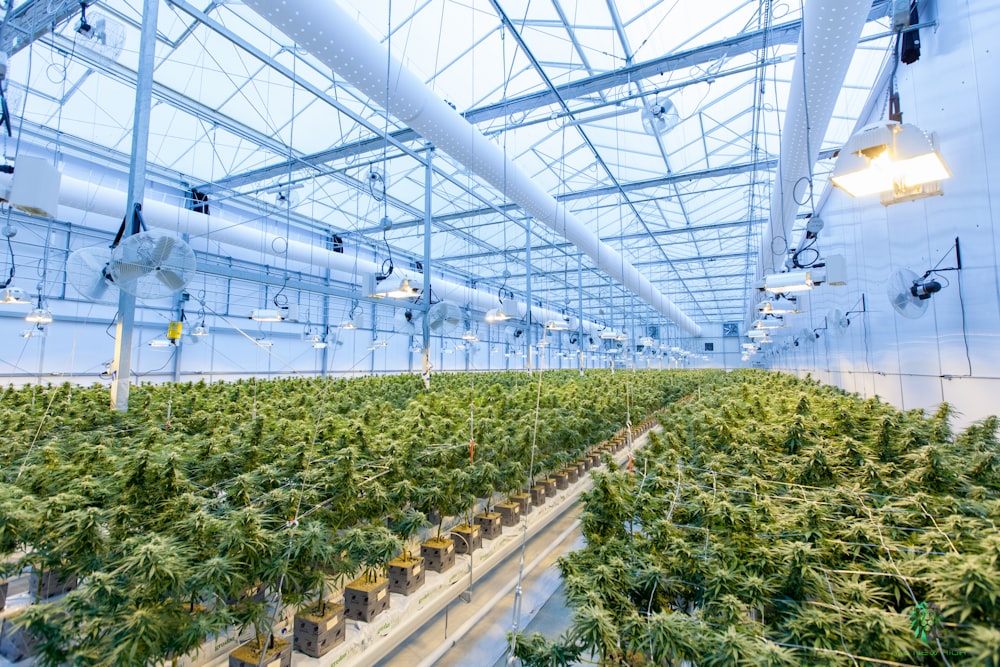What purpose is served by wholesalers providing warehousing facilities?
The process of conducting business in a smooth manner consists of various steps and stages, from production to sale. Beginning from procurement of raw materials, processing them to manufacture’s product, shipping them off to wholesalers, who then send these across to distributors, who provide these products to retailers for final sale, a lot goes on behind every single product that is available for purchase in the market.
To efficiently manage all these steps, various players are involved that provide different services to keep the supply chain flowing. Therefore, warehousing facilities are one of the essential facets of running a business for all involved parties.
What is a Warehouse?
A warehouse is a facility or building wherein product manufacturers can store all the manufactured goods before they are passed on to distributors and retailers. A warehouse is vital for every manufacturer as it allows them to find space for storing inventory while they continue manufacturing operations to meet the market demand for their product. However, finding the perfect warehousing solutions can be an overwhelming task as commercial warehouses see a lot of demand for storage space from various manufacturer’s product. This can also often lead to a bidding war among manufacturers looking to store their products in a particular facility.
Types of Warehouses

A Bonded Warehouse, also known as a customs warehouse, is a warehousing facility where imported goods by manufacturers can be stored without the need to pay customs duty.
These are beneficial for those importers who refurbish or modify the product or product packaging in some way and then export it further. Manufacturers who are importing goods for domestic use would have to pay import duty for those products even if they are initially stored in Bonded Warehousing facilities.
These facilities allow importing companies to store the goods, for some says, “manipulate” them, which essentially means re-packaging them, assembling them, etc., as long as the modifications are not significant enough to qualify as manufacturing, and then export them. They help in significant fund savings. However, as the name suggests, this warehouse model is not helpful for all manufacturer’s product
A Wholesaler Warehouse is much more helpful for domestic manufacturing and selling of products. A wholesaler of a product is the individual or company which buys manufactured goods directly from the manufacturer in bulk and distributes them to many distributors across its active region. These distributors then pass on the products to various retailers in their functional area, who finally sell the product to consumers. Wholesalers who provide a warehousing storage facility to manufacturers prove to be highly beneficial for ensuring a smooth supply chain function.
Purpose served by wholesalers providing warehouses facilities
Warehousing solutions can be pretty pricey, leading the manufacturers to opt for one of two resolutions to minimize the impact on profits:
The manufacturers would either sell the product at a higher cost.
They would opt to store the manufactured products in their own facility, which would have minimal capacity, thereby causing a gap in the demand and supply for the product, which in turn would again cause a rise in prices of the product.
Wholesalers providing warehousing facilities to the manufacturers solve these issues and much more. Wholesalers with warehousing facilities make it simpler and smoother to conduct business not only for the manufacturer’s products but also for distributors and retailers’ products also.
Here’s how warehousing facilities are beneficial:
Wholesalers who have ample warehouse space allow manufacturers to continually produce the product they are selling without having to worry about storage space. This ensures the smooth functioning of every stakeholder in the lifecycle of the product.
Warehouses are designed to have controlled temperature conditions so that the products do not spoil and retain their newness. This becomes essential because wholesalers providing warehousing solutions can be required to store a large number of goods for some time. Depending upon the nature of the product, maintaining climate control becomes essential to increase shelf life. If the storage facility is not equipped with these controls for a somewhat sensitive product, it could lead to the spoiling of the product and ultimately cause losses to the manufacturer’s product.
Wholesalers make it easier for distributors and retailers to purchase the required amount of goods without running around to multiple locations. Some retailers buy products from distributors, while others buy them directly from wholesalers. Those retailers who purchase their inventory directly from wholesalers benefit on two principal grounds:

At every level of product procurement, every stakeholder gets a share of the money. For example, a manufacturer’s product, one unit of his product for INR 5. They would sell it to the wholesaler for INR 6; the wholesaler, in turn, sells it to the distributor at INR 7.5, who then sells the product to the retailer for INR 9, finally driving up the cost to INR 12 for the consumer.
By procuring the product directly from wholesalers, retailers are able to get this product for INR 7.5, thereby increasing their profit margin. The retailers then have two options. They can either sell the product at the original INR 12 or sell it at a discount which still brings them profit and helps clear inventory quicker.
These are the primary reasons which make wholesaler-provided warehouse facilities an attractive choice for various stakeholders. Those wholesalers who provide this solution are not only benefitting from the considerable inventory capacity themselves but are also proving to be highly beneficial for manufacturers, distributors, and retailers alike. Warehouses operated by wholesalers are located at convenient locations for manufacturers, which makes it easier for them to transport finished products to the warehouse facility.
With the multiple benefits that wholesaler warehouses provide to all of the parties involved in the entire product lifecycle, manufacturers are often advised and with good reason to find wholesaler warehouses that can provide this service to them.



